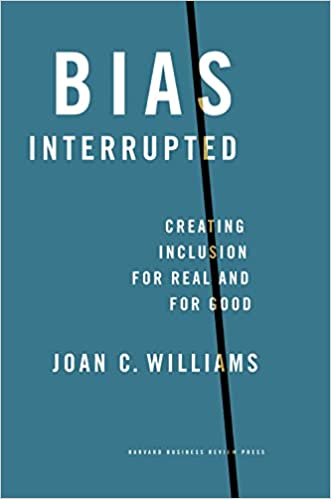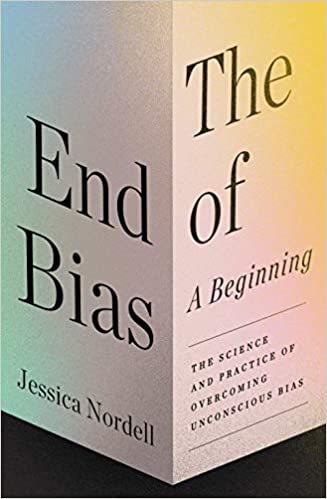What do I know about bias? On the face of it, not much. I’m a middle-aged white guy. I’m college educated, a homeowner, and I work in a white-collar job. I’ve never been subject to the daily microaggressions experienced by Black colleagues.
I’ve never been a new mother returning to work and finding herself disadvantaged at every turn. Unlike my own mother, I’ve never been a single parent.
And I like to think of myself as pretty liberal, so it’s not like I consciously practice bias, either. I mean, I’ve got Black and Asian friends, LGBTQ+ friends, friends with disabilities. How can I be biased? I know the issues, and I try to be sensitive.
Unconscious Bias: Hiding in Plain View
In fact, I’m likely a serial perpetrator of unconscious bias. And the kicker is in the word “unconscious.” I don’t even know that I’m doing it. But I do.
I might instinctively cross the road to avoid a couple of Black guys hanging around, even if a second glance tells me they’re waiting for a bus. I might ask an Asian colleague to deal with a technical issue, because, well, they know about that sort of thing, don’t they? But I might be surprised to hear that they’ve been promoted to a leadership role.
So I approached these two books on bias uneasily, expecting to learn some hard lessons. And there were a few. But the benefits far outweighed the moments of uncomfortable self-recognition.
Interrupting Bias

They’re two very different books. “Bias Interrupted: Creating Inclusion for Real and for Good,” by Joan C. Williams, is a manual for the here and now. Each chapter addresses an issue in workplace bias. The tone is can-do, even must-do. Backed by a ton of research, it’s entertaining, real world, and compelling.
The “interruptions” of the title are specific, measurable actions that organizations can take to address bias. Some of them are tough. But Williams isn’t taking “can’t do it” for an answer.
A World Beyond Bias?
The research behind Jessica Nordell’s “The End of Bias: A Beginning: The Science and Practice of Overcoming Unconscious Bias,” is just as impressive. Impressive enough for it to have been shortlisted for the 2021 Royal Society Science Book Prize, under its U.K. title, “The End of Bias: How We Change Our Minds.”

But this is a book with a much wider scope, as its title suggests. It visualizes the possibility of reducing or even eliminating bias, unconscious or otherwise, from entire societies.
That’s quite a vision. Unsurprisingly, the book is a call to action rather than a handbook of tried-and-true solutions. It explores real-life situations in which positive action has made a difference, but leaves the possibilities open.
Minding My Language
It was Williams who brought me to a sudden halt, though. Her discussion of class-based bias among college students was one I recognized with a shock.
As a kid, I won a scholarship to a selective high school across town. Not many people from my area got to go there. My mum was so proud, so I tried my best to fit in with the sons of lawyers, doctors and C-suiters.
I did OK. But there were always markers. My speech was one: I’ve got an uncultured accent. I dropped consonants and mangled vowels that my classmates didn’t.
One day I got to read a passage in French class. I knew I could do this, and I did – word perfectly. My teacher said as much. Then he paused, grinned, and said, “What a pity you can’t speak English.”
It was a cheap gag for the rest of the class. They laughed. I laughed. You have to fit in. But decades later, I still remember the humiliation.
Sense and Sensitivity
Oversensitive? Maybe. Or maybe I’m just more used to being on the other side of the equation. I don’t suffer the grinding, low-level, day-to-day discrimination experienced by people who don’t have all the advantages, the privilege, that I’ve enjoyed.
So I’ve come to think of it as a positive experience. A sharp reminder of my own unconscious biases, and my responsibility to eliminate them.
Can I meet that responsibility? I don’t know. Can everyone do it? Because that’s what we need if we really are to see the end of bias. But these two books, by turns practical and idealistic, at least allow the possibility that we’re getting closer.
Download Our “End of Bias” and “Bias Interrupted” Book Insight
Mind Tools reviews the best new business and self-development books, alongside the tested classics, in our monthly Book Insight for the Mind Tools Club. So, if you’re a Club member or enterprise licensee, you can download or stream the full “End of Bias and Bias Interrupted” Book Insight in text or audio format.
Meanwhile, what’s your experience of bias? Have you suffered it, or been responsible for it? How do you fight it? Join the discussion by adding your thoughts below!



